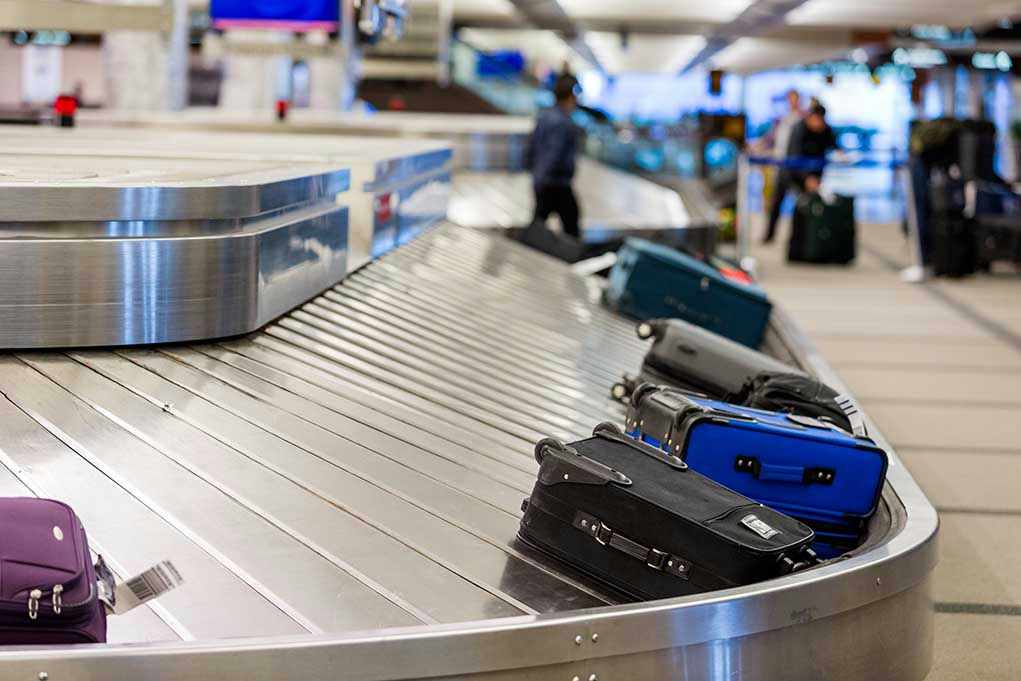
Scammers are exploiting discarded luggage tags to commit fraud, leaving travelers vulnerable and airlines on high alert.
Story Snapshot
- Scammers use discarded luggage tags for fraudulent claims.
- Travelers’ personal data is at risk due to this growing scam.
- Airlines face challenges in processing legitimate claims.
- Experts urge travelers to dispose of tags securely.
Fraudulent Claims Exploit Discarded Tags
Airport workers are reporting a surge in fake lost luggage claims as scammers exploit discarded baggage tags. These tags, often tossed aside at airports or hotels, contain personal and travel information, enabling fraudsters to file false claims for lost luggage reimbursement. The trend has complicated the processing of legitimate claims and exposed vulnerabilities in current baggage tracking systems. Travelers, unaware of the potential risks, face increased anxiety over personal data security while airlines struggle to maintain claim integrity.
Challenges for Airlines and Travelers
Airlines are under pressure to efficiently process lost luggage claims, providing scammers an opportunity to exploit gaps in verification processes. The lack of formal statistics or law enforcement actions complicates the issue, leaving only anecdotal accounts from airline staff and travelers. This growing scam highlights the need for improved security measures and increased traveler awareness. Experts recommend treating luggage tags as sensitive data and advise shredding them post-travel to prevent misuse.
Despite the rise in fraudulent claims, airlines have yet to issue formal warnings or change protocols significantly. Some airports, like those in Japan, have implemented secure disposal bins for luggage tags, indicating a proactive approach to mitigating the risk. However, the broader industry remains in a state of reactive rather than preventive action, as stakeholders await official guidance or regulatory changes.
Potential Solutions and Industry Impacts
In response to the growing threat, industry experts advocate for stronger encryption and digitalization of baggage tracking systems. The adoption of biometric IDs could eventually replace physical tags, potentially reducing fraud risk. Such advancements would require significant investment but promise enhanced security and accountability. The International Air Transport Association’s push for end-to-end tracking has already led to more detailed tagging and data collection, a double-edged sword offering both increased efficiency and vulnerability.
Your discarded luggage tags are worth money to scammers https://t.co/H9EuiKzizd #FoxNews
— Donald t Beavers (@donsspencer) September 18, 2025
As the travel industry grapples with these challenges, travelers and airlines alike must adapt behaviors to safeguard personal data. Increased traveler vigilance and industry innovation are crucial to overcoming the current vulnerabilities. While the scam’s prevalence is debated, its implications for personal data security and airline trust are undeniable, warranting immediate attention and action.
Sources:
Fox News: Your Discarded Luggage Tags Are Worth Money to Scammers
Embry-Riddle Aeronautical University: Eagles Work with Aviation Industry to Secure Baggage Tags
Beumer Group: How Biometric IDs Could Replace Baggage Tags Globally
Schneier on Security: Baggage Tag Scam











